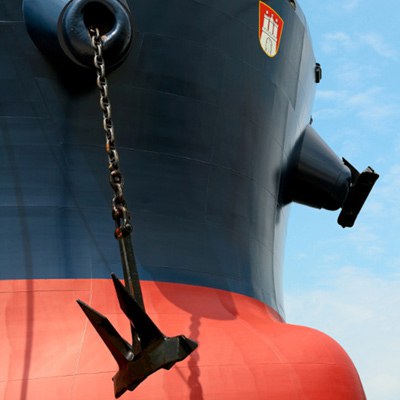Brandstwiete 1
20457 Hamburg

Gerhard Wessels
Phone: +49 40 36137-229
Mail: gerhard.wessels@bg-verkehr.de
Laid up ships
- Temporarily out of service
- "Hot laying up" and "cold laying up"
- Requirements for safe manning
- Exemption: shifting a laid-up ship
Laid-up ships are ships, which are temporarily out of service
The term laid-up ships means ships, which are temporarily idle due to lack of cargo or which are temporarily phased out of commercial operations. Ships are laid-up when freight rates are not sufficient to cover the running costs. During times of economical crisis laying-up is often preferred to the sale of the ship.
"Hot laying up" and "cold laying up"
There are two different ways to lay up ships:
- “Hot laying up” and
- “Cold laying up”.
During “hot laying up“ a ship is idle, but can be brought back into service at short notice. “Cold laying up“ means that the ship is taken out of service due to lack of employment and is moored or anchored at a safe place waiting for new employment.

Requirements for safe manning of laid-up ships
In any case the shipowner is responsible for safe manning of his laid-up ship. Therefore the ship safety division does not normally issue a special safe manning certificate for a laid-up ship (with the exception described below).
During laying up of a ship the shipowner must man the ship such that:
- safe watchkeeping is guaranteed,
- it can respond effectively in case of emergency,
- the watertight integrity according to fire protection and buoyancy is maintained,
- the ISM- and the ISPS-code are complied with,
- at anchor a safe anchor watch according to STCW code section A-VII/2, part 4.1 is guaranteed.
Exemption: Restricted safe manning certificate for shifting a laid-up ship
The ship safety division can upon application of a shipowner issue a safe manning certificate for a ship in „hot lay up“ if the ship is to be shifted to another place. In such case the ship safety division may accept a reduced number of crew compared to that required for normal operation. This certificate is valid for up to 48 hours and only for the shifting of the ship.
Examples for acceptable reasons for shifting the laid-up ship are:
- Supply of water, provisions or other urgently required fuel and material,
- seeking shelter in case of bad weather,
- medical treatment of the crew,
- initial loading operation in connection with resumption of the ship’s service, and
- repairs by a shipyard.
A shipowner applying for a restricted safe manning certificate must explain how he intends to man the ship during its shifting. The master must be an EU citizen.


